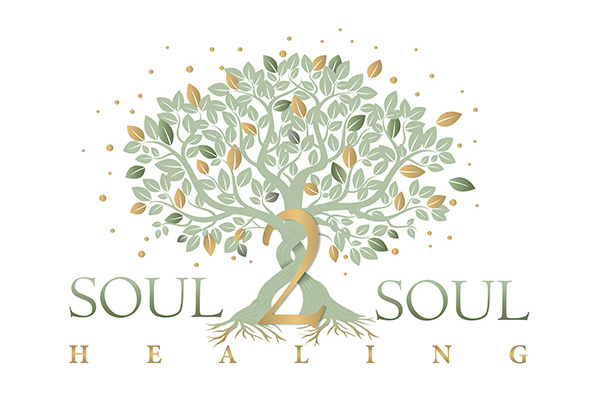Teen mental health is an incredibly important topic for adolescents and their families. The teenage years are full of emotional, overwhelming, and sometimes painful experiences. Parents may write off their child’s behavior as typical teen rebellion or adolescent hormones. You hate to see your teen struggle, and you want to believe that they’ll simply grow out of it. In some cases, though, there are more serious issues at play.
Therapy is a valuable resource for teenagers who are facing mental health concerns. Most teens don’t want to open up to their parents about their emotions, but they may feel more comfortable when working with a professional. Recognizing the need for therapy for teens is one of the best things you can do as a parent to protect your child’s mental health.
Here Are Eight Signs Your Teen Should See a Therapist
1. They’ve been lashing out.
Occasional angry outbursts from your teen are normal. Adolescence is a stressful and turbulent time, and your child may lash out when they don’t have a better outlet for expressing their emotions.
Frequent outbursts may be a sign of an underlying mental health issue, though. Anger and irritability can be a cover for stress, anxiety, fear, shame, or other painful emotions. Irritability is one of the key symptoms for children, struggling with depression. If you’ve noticed that your teen has an extremely short fuse all the time, it may be time to try therapy. In therapy, your child can explore the cause of their anger and learn healthier coping skills so that they can handle the stressful moments in their life without lashing out.
2. They’re socially isolated.
The teenage years usually bring about a major social transition. Teens go from leaning on their parents for emotional support to relying on their friends. Your child needs strong and trusting friendships as they go through adolescence. While being introverted and valuing your alone time is perfectly normal and healthy, being completely isolated is not.
Social isolation can be especially concerning if you’ve noticed that your child has recently withdrawn from their friends. Maybe there’s bullying at play, or maybe your teen is isolating themselves as a result of depression or another mental health issue. Whatever the reason, therapy for teens is an opportunity for your child to gain an understanding of their social needs and how they can meet those needs.
3. They have low self-esteem.
Low self-esteem is one of the most common mental health challenges teenagers face, especially in the age of social media. Teens are always comparing themselves to their peers. Constantly feeling like you don’t measure up to friends or classmates can be
extremely painful.
Your child may fixate on their perceived flaws or poke fun at themselves relentlessly. Self-deprecating humor can be harmless sometimes, but your teen may be struggling with their mental health if they’re always criticizing themselves. Therapy can help them learn how to dismiss the negative self-talk and treat themselves with more compassion.
4. Their performance in school is slipping.
Students are sometimes held to impossibly high standards, which only leads to more stress and anxiety. You shouldn’t expect your child to perform perfectly in school. However, a significant decline in their grades or a loss of interest in their extracurriculars can be a sign that something’s wrong.
Depression causes a lack of motivation and decreased interest in hobbies. If your teen seems to stop caring about school, they might be so emotionally fatigued that they just don’t have the energy to try anymore. Therapy can help your child figure out why they’re struggling with school, and it can encourage them to process and release the negative emotions that are holding them back.
5. They’re developing unhealthy habits.
A change in sleeping, eating, or grooming habits is a common sign of a mental health issue. When you’re struggling with your mental health, you may engage in unhealthy habits like overeating or oversleeping as a form of coping. It’s also hard to take good care of yourself when you’re constantly fighting off negative thoughts and emotions.
You might notice that your teen isn’t showering as frequently or has started wearing old or mismatched clothes. They may overeat, skip meals, or only eat unhealthy foods. Any decline in self-care can be cause for concern and may be worth addressing in therapy. Be careful when bringing this up with your teen, though, as you don’t want them to feel like you’re shaming them.
6. They’ve been through a trauma or major transition.
Trauma is painful at any age, but it’s especially hard to process as a teenager. Unresolved trauma can lead to depression, anxiety, social isolation, risky behavior, and so many other issues. Whether your teen recently went through trauma or experienced a traumatic event as a younger child, going to therapy is an important step in the healing process.
Similarly, going through a major life transition as a teenager can have mental health consequences. A move, a change in schools, a death in the family, the loss of a pet or the remarriage of a parent can all dramatically affect your teen’s life and emotional well-being. Therapy for teens provides a safe, private environment for them to process these changes.
7. They’ve been talking about death or suicide.
Speaking frequently about death or dying is one of the most important signs your teen should see a therapist. When someone’s struggling with suicidal ideation, it often comes out in their words. Your child might sound like they’re just making a dark joke, but even offhand comments about dying need to be taken seriously.
If you’re concerned that your child is in immediate danger, you should call 911 or 988 for the crisis lifeline. If they’re not in an acute crisis but are struggling with suicidality, therapy for teens is essential. They may feel like they can’t escape their suicidal thoughts, but therapy can help them overcome the harmful beliefs and emotions that are causing them so much pain.
8. Marijuana, Alcohol Use and Vaping
The use of marijuana, alcohol, vaping and other drugs is frequently the sole means of escape for many unhappy teenagers. They can feel better, less stressed, and more able to manage by temporarily reliving their depressive symptoms. Unfortunately, marijuana usage worsens the signs and symptoms of depression and increases the risk of more severe mental illnesses.
Therapy for Teens in El Segundo
Soul 2 Soul Healing offers therapy for teens. We understand how painful it can be to see your child struggle with their mental health, and we’re here to help. Whether they have a diagnosed mental health disorder or just need extra support navigating challenges at school or home, therapy can equip them with the coping skills they need to thrive. Please reach out to us today to learn more about how our teen therapy services can help your family.



